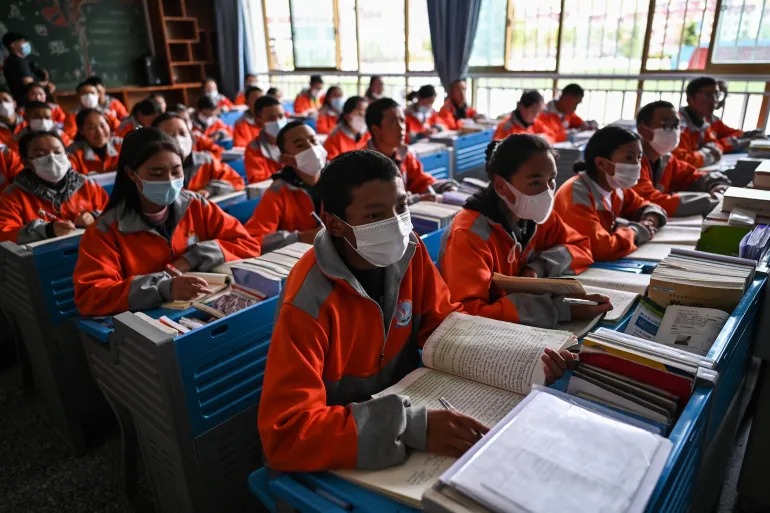In a move that escalates tensions between the United States and China, the US has imposed new visa restrictions on Chinese officials suspected of involvement in the alleged “forced assimilation” of over a million children in state-run boarding schools in Tibet. This contentious action underscores the growing international concern regarding the separation of Tibetan children from their families and cultural heritage, amplifying existing friction between the two global powers.
New Visa Restrictions Unveiled
In an attempt to address the reported “forced assimilation” occurring in state-run boarding schools in Tibet, the United States has announced fresh visa restrictions against Chinese officials implicated in the matter. While specific individuals were not named by US Secretary of State Antony Blinken, the move represents a strong message aimed at China’s coercive policies targeting the cultural, linguistic, and religious identity of Tibetans.
Concerns Over the Well-being of Tibetan Children
Experts have raised alarm bells, revealing that approximately one million Tibetan children are being subjected to a program of enforced assimilation in state-run boarding schools. These children are being severed from their families and cultural roots, compelled to complete a “compulsory education” curriculum in Mandarin Chinese. This has led to a distressing erosion of their native language skills and their connection with their heritage.
Diplomatic Fallout and International Scrutiny
The imposition of these new visa restrictions further strains already tense relations between the United States and China. The move comes as both nations grapple with issues ranging from trade disputes to the COVID-19 pandemic’s origins, the treatment of Uighurs, and the Taiwan situation. China’s dismissal of the restrictions as “smears” underscores the gravity of the allegations and the potential impact on diplomatic interactions.
In conclusion, the new US visa restrictions on Chinese officials in response to alleged “forced assimilation” in Tibet exemplify the growing global concern for the well-being and cultural preservation of Tibetan children. This move sends a clear message to China, further impacting the already strained relations between the two nations. The incident underscores the significance of respecting cultural identity and human rights in a world that values diversity and inclusivity.















